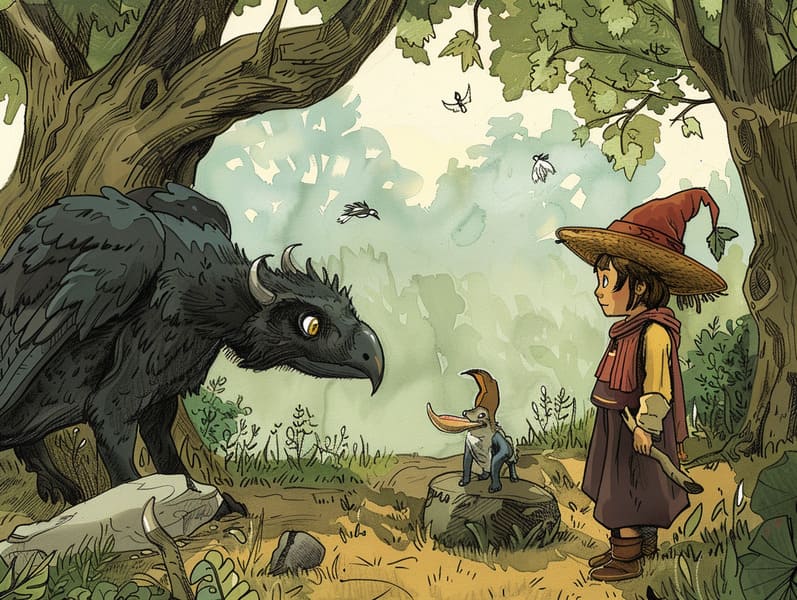Appreciating the Beauty of Nighttime Adventures: Developing Beloved Occasions with Your Little Ones
Appreciating the Beauty of Nighttime Adventures: Developing Beloved Occasions with Your Little Ones
Blog Article

Evening is a precious time for kids and their parents. It’s a ritual to settle down, hug close, and partake in the enchantment of sleepy-time tales.
For lifetimes, evening stories for little ones have been a valued ritual, offering more than just a way to go to sleep. They provide an opportunity for affection, learning, and encouraging vision.
Why Bedtime Stories Matter
Children's bedtime stories do more than a way to close the day. They play a important role in a child’s progress and in fortifying the parent-child tie. Here’s why they make a difference:
1. Quality Time: Telling bedtime tales builds a special bonding moment between kids and their parents. It’s a moment of intimacy that helps children feel secure and protected.
2. Speech Improvement: Enjoying narratives helps children develop their communication skills. They understand new terms, understand sentence structures, and improve their listening and understanding abilities.
3. Imagination and Creativity: Children's tales take them to wondrous worlds, stimulating dreams. They dream of characters, settings, and adventures, which sparks their imagination.
4. Feeling Recognition: Kids' tales often depict characters facing challenges and feelings. These plots help kids interpret and deal with their own emotions, fostering emotional skills.
5. Thinking Skills: Being read a tale helps children develop mindfulness, remembering, and logical thinking. They gain to follow lines of thought, remember pieces, and foresee consequences.
How to Make Bedtime Stories a Routine
Developing a night-time practice that embraces sharing tales is easy and satisfying. Here’s how to make it a beloved part of your evening custom:
1. Choose a Comfortable Spot: Choose a peaceful place where you and your child can get cozy without noise. A comfortable bed or a quiet reading nook works great.
2. Establish a Routine Time: Set a consistent time each night for narratives. Consistency helps children know what to expect and makes the routine more manageable.
3. Pick Age-Suitable Stories: Pick tales that are tailored to your child’s understanding. Preschoolers might prefer books with pictures with clear stories, while grown children may enjoy novels with more involved stories.
4. Interact with the Story: Try to the tale come alive by employing different voices for characters, adding special sounds, and having your child to be active. Ask details about the story to involve them.
5. Make a Peaceful Setting: Lower the lights, use quiet tones, and create a quiet environment to help your child ease into rest.
Best Places for Bedtime Stories
There are numerous choices where you can find fantastic bedtime stories for children. Here are some ways to check out:
1. Kids’ Literature: Check out your local library or bookstore to find a great selection of bedtime stories for kids. Looking through the options together can be a enjoyable activity that also gives children to decide on stories that they are drawn to.
2. Internet Sources: There are many places online that offer free bedtime stories. Sites like children's story websites provide a variety of short stories for kids that you can print out. These websites are great for finding new and unique stories without charges.
3. Audio Stories and Apps: For nights when you’re too worn out to read, explore audiobooks or storytelling apps. These can provide a relaxing voice to read your child a story, ensuring they still get their bedtime story fix. Apps often offer fun elements that can involve them further.
4. Custom Stories: Design your own stories reflecting your child’s likes. Personalized stories can be especially engaging and meaningful. You can engage your child in the storytelling process, making them a part of the adventure.
Why Short Stories Are Great
Short bedtime stories are particularly beneficial for bedtime. They provide all the good points of longer stories but are more brief, making them perfect for getting ready for bed before sleep. Here’s why short stories are a great choice:
1. Effortless to Follow: Brief tales are easy and effortless for children to follow, even after a long day. They can swiftly grasp the tale and enjoy the story without getting lost.
2. Instant Engagement: Quick narratives promptly engage children, holding their engagement and imagination. This makes them great for keeping bedtime traditions effective yet enjoyable.
3. Variety and Flexibility: Concise narratives make possible for variety in your bedtime storytime. You can get a different story each night, keeping the custom engaging and exciting for your child.
4. Time Management: For busy parents, quick stories are a quick way to ensure children still get their nightly dose of storytelling. They fit well into a packed schedule while still offering the full good aspects of a bedtime story.
The Allure of "Read Me a Story"
The simple phrase, “Can you tell me a story?” can give a world of magic for children. Answering to this request not only satisfies a child’s desire for attention and engagement but also builds lasting occasions. Here’s why it’s amazing:
1. Connection: Sharing stories to your child builds a deep emotional attachment. It’s a time for affection, sharing, and bonding.
2. Ritual: Starting a bedtime story practice creates a treasured tradition that children anticipate every night. It’s a habit that can be these guys continued through generations.
3. Shared Learning: As you read, you’ll experience your child’s growth and maturation. Their interest, reactions, and understanding of the stories grow, offering insights into their developing minds.
4. Protective Space: Bedtime stories provide a safe space for children to deal with emotions, face fears, and find comfort in the safe presence of a parent.
To Sum Up
Bedtime stories for kids are a effective tool for fostering a child’s progress and developing unforgettable experiences of connection.